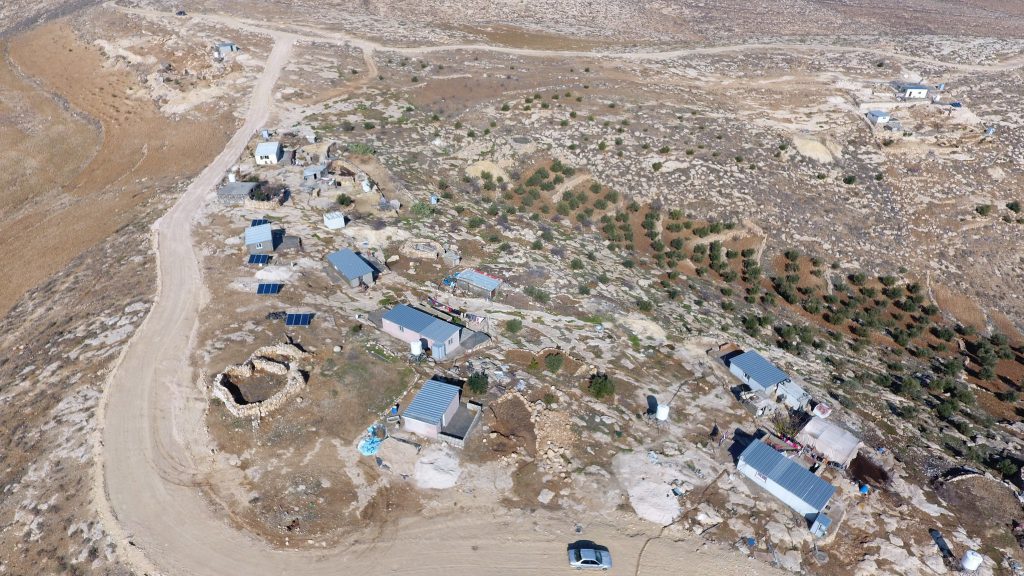
This article first appeared on the JNS Wire.
Through incessant legal and procedural appeals, the PA has upended Israeli law enforcement and set the system against itself, creating facts on the ground and laying the foundations of a Palestinian state in the heart of the land of Israel.
It’s no secret that the system of law in force in Judea and Samaria is far from ideal: In the aftermath of the Six-Day War, the Israeli government balked.
Rather than applying Israeli law to the territory liberated in 1967 — territory that had always been within the internationally recognized borders of the Jewish homeland—Israel chose instead to “temporarily” maintain the existing legal framework. Despite the fact that Jordan’s invasion, occupation and annexation of Judea and Samaria (the areas that it then began to refer to as “the West Bank” as a means of justifying its presence there) were illegal, and were never recognized by the international community, Israel deemed it more prudent not to act on its very solid and exclusive claims to the historic heartland of Israel.
Instead, it left the territory to the mercy of a hodgepodge of legal relics, pasted together with a smattering of military orders, that has continued to hold sway for more than half a century — longer than the Jordanian occupation and the British Mandate combined.
It’s no secret that this outmoded and convoluted system is a gold mine for construction offenders. Nor is it a secret that the Palestinian Authority and its generous European supporters have perfected the art of using this “system” to their advantage.
Antiquated, ineffective and labyrinthine Jordanian regulations have been famously exploited in what is known as “lawfare”: Through incessant legal and procedural appeals, the PA has upended Israeli law enforcement and set the system against itself, creating facts on the ground that are re-drawing the map and laying the foundations of a Palestinian state in the heart of the land of Israel.
Over the past two years, Regavim has filed a number of administrative petitions in the Jerusalem District Court (which serves as the Court for Administrative Affairs) against the Ministry of Defense and the Civil Administration, regarding instances of illegal construction and de facto annexation by the P.A. and its local authorities. Specifically, Regavim’s petitions sought the implementation and execution of the “Order for Removal of New Structures,” military legislation created by the defense establishment in 2018 to cut through the legal and bureaucratic red tape that characterizes “standard enforcement procedures” in Judea and Samaria, the legal quicksand that has made law enforcement virtually non-existent.
Again and again, the state’s lawyers argued for dismissal of Regavim’s petitions on jurisdictional grounds: The New Structures Order, they claimed, does not fall within the jurisdiction of the Administrative Court, and should be heard in the High Court of Justice (HCJ).
But when Regavim petitioned the HCJ to compel the state to enforce the “New Structures Order,” the government’s lawyers argued that the petitions should be dismissed out of hand, because an alternative legal remedy is available — namely, “standard enforcement procedures” arising from the Planning and Construction Code. Even though these alternative legal remedies have not been enforced, the state argued, the proper forum for hearing these cases is … the District Court.
The long and short of it is that the government’s enforcement arm is trying to dodge any and all cases involving its failure to enforce the law — either under the New Structures Order or under the Jordanian Planning and Construction Code, whether in the District Court or in the HCJ.
Avi Segal, Regavim’s attorney, explained: “At issue is a broader question that goes beyond the individual cases. The government is shirking its responsibility to enforce the law. This is a deliberate attempt to create a legal ‘Catch 22’ that will neuter the law and empty it of all meaning, while at the same time limiting the public’s ability to scrutinize and evaluate the state’s continued inaction before a court of law — whatever court that may be.”
In the HCJ hearing on Sept. 13, Justices Anat Baron, Yael Vilner and Ofer Grosskopf had some very pointed criticism for the State Attorney. The justices required the government to provide answers, rather than hiding behind procedural cat-and-mouse jurisdictional arguments.
The court’s decision is quite clear: The state will not be allowed to continue to duck the questions raised by Regavim’s petitions, nor will it be allowed to continue to use the “Catch 22” of jurisdiction to avoid enforcing the law. The state was required to submit, within 60 days, substantive arguments regarding its failure to enact the “Removal of New Structures Order” in these cases.
Furthermore, the state was required to submit, within 60 days, an update on its progress towards amending the “Removal of New Structures Order,” so that the question of jurisdiction is clarified once and for all.
Perhaps this will go down in history as the day that the government was forced to own up to its failure to protect Israel’s interests in Judea and Samaria, and the day that the Israeli version of “Catch 22” began to unravel.
Related Posts
A New Dawn in the Battle for Judea and Samaria
Meir Deutsch, Director General for The Regavim Movement Published in Israel Hayom, December 18th, 2024 For the first time in a decade, there’s been an unprecedented decline in illegal Palestinian construction in Area C, coupled with a significant increase in enforcement actions by the Civil Administration. This isn’t just a statistic; it’s a beacon of […]
Reasonableness, unreasonableness and the abuse of the legal system
Under a newly adopted law, the “reasonableness doctrine,” created by former Chief Justice Aharon Barak as a means of vastly expanding the power of Israel’s High Court to overrule policy choices made by officials, has been curtailed. In what may come as a surprise to critics of the move in Israel and abroad, the sky has not fallen, […]








